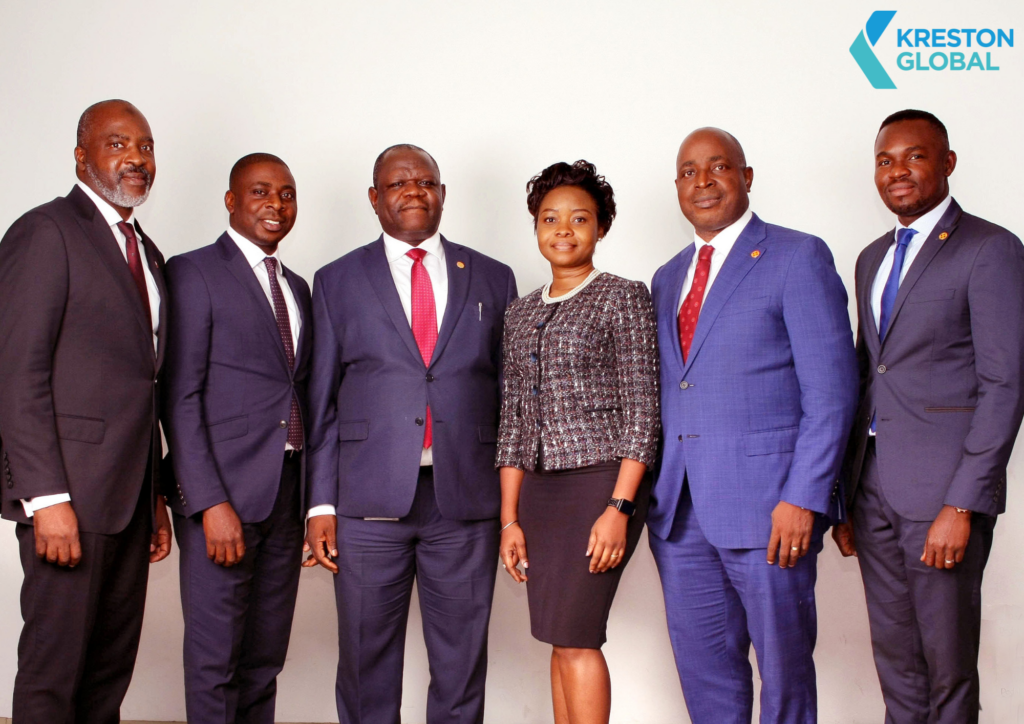Doing business in Cameroon
- How quickly can I set up a business?
- What is the minimum investment needed?
- How can I raise finance?
- What are the legal requirements for setting up my business?
- What structure should I consider?
- What advice can you give me in regards to payroll and taxation requirements?
- Is there anything else that I should know?
How quickly can I set up a business?
Following technical procedures such as compiling a business plan and the requested documents, the Cameroonian government has set up an organ to facilitate the creation of enterprises known as “Centre de Formalites de Creation d’Entreprise (CFCE)”, which offers the possibility for the creation of an enterprise in 3 days, particularly for capital less than 1 000 000 CFA. For more than 1 000 000 CFA you need to liaise with a notary.
What is the minimum investment needed?
The investment Charter 2020 governs foreign investment in Cameroon.
The business formalities center (Centre de Formalités de Creation d’Entreprise – ‘CFCE’), established under the Investment Promotion Agency (Agence de Promotion des Investissements ‘CIPA’), acts as a one-shop for business formation services.
All businesses are to register with the CFCE, irrespective of the size of the company and the nationality of its funders.
On the registration of the company at the CFCE, it will be registered with the Register du Commerce and the Credit Mobilier, as well the Tax Administration (Direction Generale des Impots – ‘DGI’).
How can I raise finance?
Finance can be raised through personal savings, borrowing or bank loans. The most popular source of finance is bank loans because of the availability of those banks, their cooperation and the competition that exists in that sector.
What are the legal requirements for setting up my business?
There are several ways of doing business in Cameroon. The most common being the setting up of a limited liability company (SARL). Investors can also establish a public limited company (SA). Alternatively, foreign companies have the option of setting up a branch office or a representative office.
What structure should I consider?
The forms of doing business available in Cameroon are mainly the following, provided for by the OHADA Uniform Act on Commercial Companies and Economic Interest Groupings:
Cameroon limited liability company (SARL):
The SARL is the most common legal entity used by entrepreneurs to set up SMEs in Cameroon. A SARL must appoint at least 1 resident director and one shareholder of any nationality. The shareholder can be an individual or a body corporate. The minimum share is 100 000 CFA will shall be divided into equal share whose face value may not be less than 5000 FCFA.
Cameroon Public limited Company (SA):
A minimum paid-up share of 10 Million CFA is required to complete the company setup in Cameroon. A higher share capital of 10 million CFA is, however, required afterwards if the company intends to be publicly listed.
Simplified limited Liability Company (Societe par Action simplifiée SAS):
No minimum required share but in practice it is 10 million CFA.
Cameroon Branch (Succursale):
Foreign companies may open branches of their foreign legal entities in Cameroon.
Cameroon Representative Office (Bureau de liaison):
Although 100% foreign ownership of a representative office is allowed, it is not considered a legal entity and it is not allowed to conduct any direct sales in Cameroon.
What advice can you give me in regards to payroll and taxation requirements?
The tax system under ordinary law for companies established in the Republic of Cameroon is codified in the General Tax Code and applied to both resident and non-resident companies. This tax is levied on categories of income as follows:
• Profits or income made by companies and other corporate bodies.
• Salaries, wages, pensions and life annuities.
• Income from stocks and shares.
• Income from real estate.
• Profits from handicraft, industrial and commercial activities.
• Profits from farming business.
• And profits from non-commercial and related profession.
The standard corporate income tax rate is 30%. An additional council tax of 10% is applied making the total tax charge to be 33%.
The monthly minimum tax applied on the turnover is generally 2.2%, 3.3% or 5.5% of turnover based on the tax regime to which the company belongs.
The minimum tax is creditable against corporate tax due for the current financial year. In case of loss, the monthly amounts paid within the year is considered as corporate minimum tax.
The Value Added Tax (VAT) in Cameroon is levied at a standard rate of 19.25%. Companies with a taxable annual turnover for VAT file returns by the 15th of each month.
A 16.5% withholding tax is applicable on dividends paid to resident- and non-resident companies. This can be reduced where a double tax treaty is applicable.
A 15% withholding tax is applicable on royalties paid to non-resident companies. The rate may, however, be reduced where a double tax treaty applies.
Capital duty is chargeable depending on the companies registered capital at a regressive rate of 2% and 0.25%.
Taxable income:
• Income from salaries, wages, allowances, emoluments, pensions and life annuities; where the remunerated activity is carried out in Cameroon.
Basis of assessment:
• The basis of assessment shall be the gross amount of salaries, allowances, emoluments, wages, pensions and life annuities as well as benefits in kind or in cash granted to the persons concerned.
Is there anything else that I should know?
An ad valorem and specific excise duty on products is instituted. Generally, excise duty is applicable on the following products: wines of fresh grapes, cigars and cigarettes, cosmetics, beers, telephone and internet operations.
Rules applicable on VAT relating to persons liable, taxable operations, exoneration and territoriality are also applicable to excise duty.
How can Kreston grow your business?
Select your business type:
- Afiliarse
- Buscar un lugar
- Ciencias de la vida y sanidad
- Conocimientos
- Encuentra una empresa
- Energía, servicios públicos y recursos
- Establecer un negocio en Argentina
- Gracias
- Industria manufacturera y del automóvil
- Inicio
- Inmobiliario y construcción
- La encuesta Interpreneur: Tendencias empresariales globales del mercado medio
- La encuesta Interpreneur: Comprender las tendencias de las empresas medianas en Brasil
- La encuesta Interpreneur: Comprender las tendencias de las empresas medianas en China
- La encuesta Interpreneur: Comprender las tendencias de las empresas medianas en el Reino Unido
- La encuesta Interpreneur: Comprender las tendencias de las empresas medianas en España
- La encuesta Interpreneur: Comprender las tendencias de las empresas medianas en Estados Unidos
- La encuesta Interpreneur: Comprender las tendencias de las empresas medianas en Francia
- La encuesta Interpreneur: Comprender las tendencias de las empresas medianas en Nigeria
- La encuesta Interpreneur: Comprender las tendencias del mercado empresarial medio en la India
- La encuesta Interpreneur: Comprendiendo las tendencias de las empresas medianas en México
- La encuesta Interpreneur: Entender las tendencias de las empresas medianas en Alemania
- La encuesta Interpreneur: Entender las tendencias de las empresas medianas en Egipto
- La encuesta Interpreneur: Entender las tendencias de las empresas medianas en Sudáfrica
- La encuesta Interpreneur: Entender las tendencias del mercado empresarial medio en los EAU
- Noticias
- Asesoría
- Auditoría y seguros
- Ciencias de la vida y sanidad
- Contabilidad
- Energía
- ESG
- Fabricación y automoción
- Finanzas
- Fiscalidad
- Inmobiliario y Construcción
- Movilidad mundial
- Organizaciones benéficas sin ánimo de lucro y educación
- Servicios de precios de transferencia
- Subcontratación
- Tecnología, Medios de Comunicación y Telecomunicaciones
- Venta al por menor
- Nuestra red
- Nuestros servicios
- Auditoría y seguros
- Externalización de servicios
- Impuestos indirectos
- Servicios contables
- Servicios de asesoramiento
- Asesoramiento en reestructuración empresarial e insolvencia
- Consultoría informática y servicios de ciberseguridad
- Consultoría Medioambiental, Social y de Gobernanza
- Independent Business Review
- Servicios contra el fraude empresarial
- Servicios de asesoramiento en finanzas corporativas
- Servicios de asesoramiento en RRHH
- Servicios de asesoramiento en TI y ciberseguridad
- Asesoramiento y apoyo financiero a empresas
- Servicios fiscales
- Recuperación de los costes de capital
- Estructuración fiscal para multinacionales
- Fiscalidad de particulares
- Incentivos fiscales a la investigación y el desarrollo (I+D)
- Movilidad mundial
- Servicios jurídicos para empresas
- Cumplimiento fiscal para las empresas
- Digitalización fiscal
- Planificación fiscal para empresarios
- Precios de transferencia
- Ocio y hostelería
- Organizaciones benéficas, sin ánimo de lucro y educación
- Póngase en contacto con nosotros
- Quiénes somos
- Servicios financieros
- Tecnología, medios de comunicación y telecomunicaciones
- Transporte y logística
- Venta al por menor
Latest news

Kreston Pedabo sobre la Agenda de Industrialización de África
Kreston Pedabo comparte sus conocimientos sobre la legislación beneficiosa para las empresas internacionales que desean expandirse en África.

La red Kreston Global da la bienvenida a un nuevo miembro en Nigeria
Kreston Global ha dado la bienvenida a la empresa nigeriana Pedabo a la red de Kreston Global.

